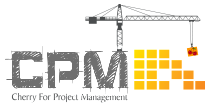FAQs
- Q?What is a project ?
-
A.
A project is an initiative launched to create a unique product or service. A project has a defined start date and a defined end date. The start date represents when the project will be launched. The end date specifies when the project will be completed.
- Q?What is Project Management ?
-
A.
Project Management is the collection and application of skills, knowledge, processes, and activities to meet a specific objective that may take the form of a product or service. Project Management is an integrated process of applying 5 major processes and their related activities throughout a project lifecycle :
* Initiating
* Planning
* Executing
* Monitoring And Controlling
* Closeout
- Q?Who is responsible for the project?
-
A.
The Project Manager is directly responsible for the results of the project. He/She should use the necessary skills, knowledge, and tools to meet the project objective(s). During the early phases of the project, the Project Manager, working with the project team, should be able to:
* Determine project goals and objectives.
* Determine assumptions and constraints.
* Define and validate product description.
* Determine project requirements.
* Define Project deliverable.
* Estimate and monitor project resource allocation.
- Q?What is a Project Phase?
-
A.
A Project Phase is a logical grouping of related or dependent activities and their related deliverable. Each Project Phase constitutes a very important milestone in a project.
- Q?What is a Risk?
-
A.
A Risk is an uncertain event that may have a positive or negative impact on the project objective. If and when it occurs, a Risk can be an opportunity (positive impact) or a threat (negative impact). There are two types of Risks: Business and Insurable. Risks can be grouped into various categories (Functional, Technical, Financial, and etc.)
- Q?When do I assess a Risk?
-
A.
An easy way to answer this question is to respond by saying that risks should be assessed throughout the entire project management process. Risks assessment doesn’t happen in a vacuum. Risks are assessed in the context of the project. The process to assess a risk has to be commensurate to the project itself—especially if the project and project manager are internal to the performing organization or external to the performing organization. Risk should always be reviewed at each project review. Risks should be monitored throughout the project lifecycle to determine if and when a risk trigger has occurred and whether the planned contingency plan was effective.
- Q?What is an Issue?
-
A.
An Issue is an unplanned consideration, concept, or circumstance that arises out of a new discovery or discourse that may impact the project objective(s). Typically, an Issue arise out of a concern, dispute between project stakeholders, or discussions. Basically, an Issue is an introduction of new information that warrants discussion or consideration.
- Q?What is the difference between a risk and an issue?
-
A.
The difference between a Risk and an Issue is that a Risk is ‘planned for’. As part of the Risk assessment process, a Risk is identified, qualitatively and quantitatively analyzed, and a response is determined and monitored. An Issue is a new consideration that needs to be analyzed before a determination is rendered. Similar to a Risk, an Issue can potentially be an opportunity (positive impact) or thread (negative impact) on the project objectives.
- Q?What if my question is not in this list ?
-
A.
Send an email to : Info@cpm-eg.com
